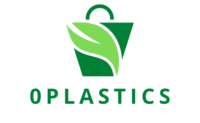In the intersection of technology and sustainability, a new wave of digital platforms is revolutionizing the way consumers engage with plastic-free shopping. These tech-driven initiatives are not only providing convenient alternatives to traditional retail but are also actively shaping the future of eco-friendly and plastic-free consumption. Let’s explore how digital platforms are seamlessly integrating technology to propel the green shopping revolution forward.
1. E-Commerce Platforms Curating Sustainable Collections:
Leading e-commerce platforms are dedicating sections or creating curated collections specifically for sustainable and plastic-free products. By leveraging advanced algorithms and user data, these platforms personalize recommendations, making it easier for consumers to discover and choose eco-friendly alternatives. The integration of sustainable shopping options into mainstream e-commerce enhances accessibility and encourages a broader audience to make conscious choices.
2. Mobile Apps for Sustainable Living:
In the era of smartphones, mobile apps play a pivotal role in connecting consumers with sustainable practices. Apps dedicated to sustainable living provide features such as product reviews, eco-labels, and personalized shopping guides. Some apps even utilize augmented reality (AR) to allow users to visualize the environmental impact of products, empowering them to make informed decisions while on the go.
3. Blockchain for Supply Chain Transparency:
Blockchain technology is being harnessed to enhance transparency in the supply chain of eco-friendly products. By recording every step of a product’s journey on an immutable blockchain, consumers can trace the origins of materials, verify ethical sourcing practices, and ensure that the product aligns with sustainability standards. Blockchain not only fosters trust but also holds businesses accountable for their environmental claims.
4. AI-Powered Personalized Recommendations:
Artificial intelligence (AI) algorithms are transforming the shopping experience by providing personalized recommendations based on individual preferences and values. Plastic-free marketplaces and e-commerce platforms leverage AI to analyze user behavior, offering tailored suggestions for sustainable products. This personalized approach simplifies the decision-making process for consumers, guiding them towards eco-friendly choices that align with their values.
5. Virtual Try-Ons and Augmented Reality:
Virtual try-ons and augmented reality experiences are enhancing the online shopping experience for eco-conscious consumers. These technologies allow users to virtually “try on” products before purchasing, reducing the likelihood of returns and minimizing the environmental impact associated with shipping and packaging. Virtual try-ons also contribute to a more immersive and engaging online shopping journey.
6. Sustainable Subscription Boxes:
Tech-driven subscription box services are gaining popularity, offering curated assortments of plastic-free and sustainable products delivered to consumers’ doorsteps. By leveraging algorithms that consider individual preferences and consumption patterns, these subscription services contribute to reducing single-use plastic by providing a convenient and personalized way for consumers to discover and adopt eco-friendly alternatives.
7. Mobile Wallets Encouraging Eco-Friendly Spending:
Digital payment platforms and mobile wallets are increasingly aligning with sustainability goals. Some platforms offer incentives or discounts for eco-friendly purchases, encouraging users to make environmentally conscious decisions. These initiatives not only promote plastic-free shopping but also foster a sense of responsibility and reward for sustainable consumer behavior.
8. Gamification for Sustainable Habits:
Gamification elements are being incorporated into apps and platforms to encourage sustainable habits. Users earn points, badges, or rewards for choosing plastic-free options, reducing their carbon footprint, or engaging in eco-friendly practices. This gamified approach makes sustainable living more engaging and appealing, turning eco-conscious choices into a positive and enjoyable experience.
9. Social Media Platforms as Advocacy Hubs:
Social media platforms are evolving into hubs for sustainability advocacy and plastic-free living. Influencers, brands, and environmental activists leverage these platforms to share information, promote eco-friendly products, and inspire their audiences to adopt a greener lifestyle. Social media becomes a powerful tool for driving awareness and fostering a community committed to sustainable choices.
In conclusion, the marriage of technology and green living is reshaping the landscape of plastic-free shopping. Digital platforms, from e-commerce giants to innovative apps, are leveraging advanced technologies to make sustainable choices more accessible, engaging, and personalized for consumers. As these digital initiatives continue to evolve, they hold the potential to drive widespread adoption of plastic-free alternatives, contributing to a more sustainable and environmentally conscious future.
